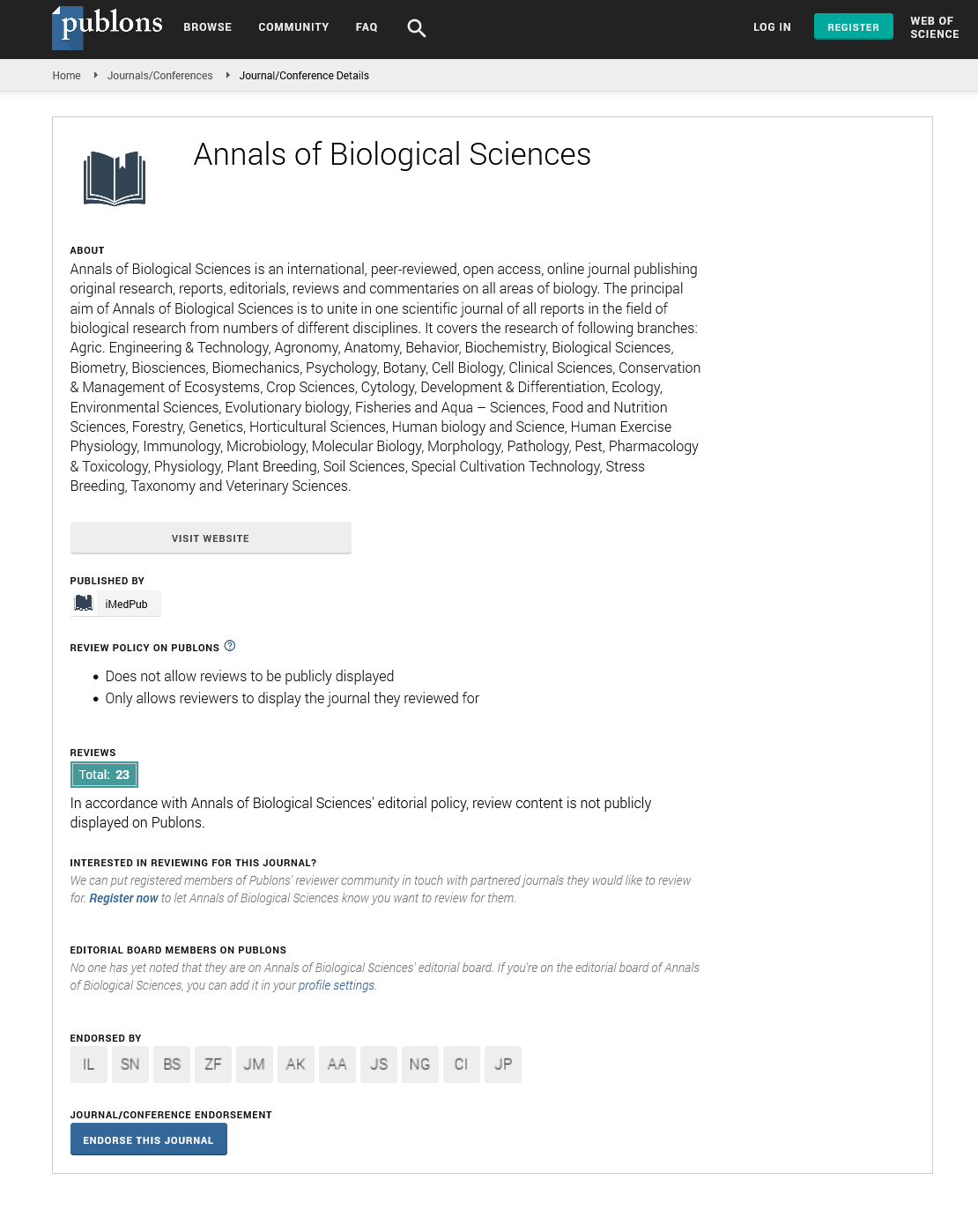ISSN : 2348-1927
Annals of Biological Sciences
Prevalence of Epstein-Barr virus genotypes in Pakistani lymphoma patients
ANNUAL BIOTECHNOLOGY CONGRESS
August 17-18, 2017 | Toronto, Canada
Sadia Salahuddin
Cornell University, USA
The University of North Carolina, USA
Gomal University, Pakistan
Posters & Accepted Abstracts: Ann Biol Sci
DOI: 10.21767/2348-1927-C1-003
Abstract
The Epstein-Barr virus (EBV) is a herpes virus infecting more than 90% of the human population. The tropism of EBV for B lymphocytes is evidenced in its association with many lymphoproliferative disorders. Different types of EBV (EBV-1 and EBV-2), classified on the basis of EBNA-2 genotyping, have been reported in benign and malignant pathologies, but there is almost no information about their frequency in the Pakistani population. The aim of this study was to determine the frequency and distribution of EBNA-2-based EBV genotypes in lymphoma patients. Genomic DNA was extracted from formalinfixed paraffin embedded (FFPE) tissue samples obtained from 73 EBV-DNA-positive lymphoma patients. The �²-globin gene was amplified to assess the presence and quality of cellular DNA from all samples. EBER-1 DNA was detected by PCR to confirm EBV presence in tissue samples. EBNA-1 mRNA relative quantification by quantitative PCR substantiated EBNA-1 mRNA overexpression in 43.8% of EBV-positive cases in comparison to an EBV-positive control cell line. EBNA-2 genotyping was done by nested polymerase chain reaction (PCR). Among the samples, EBV-1 was present in 90.7% and EBV-2 in 9.3%. These results show that EBV-1 is the most prevalent type in the lymphoma population of Pakistan, similar to reports from other countries. This definition of EBV epidemiology in Pakistani lymphoma patients represents an important first step in using EBV for prognosis and monitoring treatment response in patients.
Biography
Sadia Salahuddin is PhD scholar at Gomal University. She worked at Cornell University and University of North Carolina as research scholar for four years. She has authored number of good quality research articles in reputed journals and has been serving as an editorial board member of reputed journal.
Google Scholar citation report
Citations : 406
Annals of Biological Sciences received 406 citations as per Google Scholar report
Annals of Biological Sciences peer review process verified at publons
Abstracted/Indexed in
- Google Scholar
- China National Knowledge Infrastructure (CNKI)
- WorldCat
- Publons
- ROAD
- Secret Search Engine Labs
Open Access Journals
- Aquaculture & Veterinary Science
- Chemistry & Chemical Sciences
- Clinical Sciences
- Engineering
- General Science
- Genetics & Molecular Biology
- Health Care & Nursing
- Immunology & Microbiology
- Materials Science
- Mathematics & Physics
- Medical Sciences
- Neurology & Psychiatry
- Oncology & Cancer Science
- Pharmaceutical Sciences
